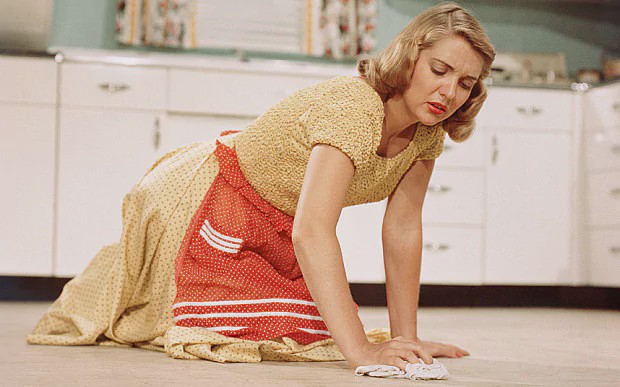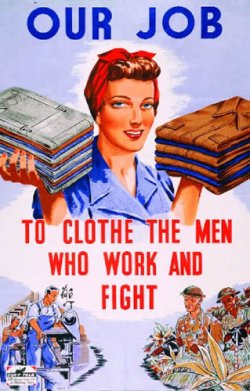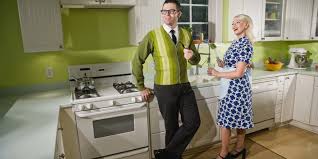Let’s cast our minds back to Australia during World War II.
An Australian Women’s Conference was held in Sydney in November 1943. Delegates came from all over the country, making this possibly the largest feminist gathering ever. Its spirit and agenda for post-war change was captured in an Australian Women’s Charter. On the question of women as mothers and homemakers, the Charter declared: “We believe the indispensable services rendered to the community by mothers, accompanied as it is by inevitable and specific handicaps, and responsibilities, demands special consideration and provision”.
 Just over three-quarters of a century later, we could imagine these very same sentiments being expressed by Australian women to the National COVID-19 Coordination Commission, the body now tasked to provide strategic advice to government on national responses to the coronavirus pandemic. Since that Charter was written we have seen so many economic and social leaps that women have traversed – increased paid workforce participation, childcare systems, financial independence, real estate investment, superannuation, increasing proportions in senior and executive management – yet our society’s take on women’s unpaid work in the home remains fixed and seemingly immutable.
Just over three-quarters of a century later, we could imagine these very same sentiments being expressed by Australian women to the National COVID-19 Coordination Commission, the body now tasked to provide strategic advice to government on national responses to the coronavirus pandemic. Since that Charter was written we have seen so many economic and social leaps that women have traversed – increased paid workforce participation, childcare systems, financial independence, real estate investment, superannuation, increasing proportions in senior and executive management – yet our society’s take on women’s unpaid work in the home remains fixed and seemingly immutable.
You see, the central problem for women over all this time, is that the home has never been declared a workplace.
It is because of the absence of such formal recognition that women’s unpaid work in the home warrants no special provisions, no remuneration, no annual leave loading, no sick leave entitlements, no superannuation provisions and indeed, short of warm fuzzies on Mothers’ Days, little recognition or thanks. It is simply what women do (or what patriarchy defines and embeds as what women do).
This is why unpaid work is not even included in the calculation of our GDP. The irony of course is that were it to be paid, the nation couldn’t afford it. Just as well, as the the monetary value is put at hundreds of billions, coming in at over half of Australia’s GDP.
 What remains constant over the past many decades is that Australian women spend substantially more time on unpaid work and unpaid care work than men; that long working hours erode health; that this unequal division of labour reinforces gender stereotypes; that the paid work performed by women is squeezed in and around household work and contributes to gendered inequalities in the labour market. Full human rights for women and genuine equality will never be possible without addressing and changing these deep-seated economic inequalities.
What remains constant over the past many decades is that Australian women spend substantially more time on unpaid work and unpaid care work than men; that long working hours erode health; that this unequal division of labour reinforces gender stereotypes; that the paid work performed by women is squeezed in and around household work and contributes to gendered inequalities in the labour market. Full human rights for women and genuine equality will never be possible without addressing and changing these deep-seated economic inequalities.
 We also know that a leveling of unpaid work at home is likely to result in better outcomes for all – between partners, in care giving, in relationships with children and in community connection and social health. Along with this domestic balancing, we know that paid workplaces will invariably be healthier, more productive and prosperous places if more men took parental leave, if more men enjoyed flexible hours, and if more men achieved better work-life balance.
We also know that a leveling of unpaid work at home is likely to result in better outcomes for all – between partners, in care giving, in relationships with children and in community connection and social health. Along with this domestic balancing, we know that paid workplaces will invariably be healthier, more productive and prosperous places if more men took parental leave, if more men enjoyed flexible hours, and if more men achieved better work-life balance.
Maybe it will take a pandemic to help shake-up our habitual thinking and policy practice around women’s role in keeping households functioning and contributing immensely to the nation’s economy, societal well-being, productivity and prosperity? Or will it?
Women are being served the double and triple whammies those in many quarters have come to anticipate under emergency conditions such as what we are now experiencing. Women will more likely than not be bearing the brunt of a sudden and enormous pressure now on households under pandemic conditions: increased health observance, shopping limitations, home-schooling or at least supervision, trying to maintain the care of other family and extended family members, dealing with the stress of being frontline health professionals and teachers, coping with employment stand-downs, loss of income, mortgage stress, and risks of increased violence within many homes.
 The challenge for those thinking through these deeply gendered issues is to identify policy, fiscal and programmatic responses which would make a world of difference for many Australian women not just now, not just over the next several months, but over the years to come as Australia climbs back slowly but not necessarily surely, from the ravages of COVID-19.
The challenge for those thinking through these deeply gendered issues is to identify policy, fiscal and programmatic responses which would make a world of difference for many Australian women not just now, not just over the next several months, but over the years to come as Australia climbs back slowly but not necessarily surely, from the ravages of COVID-19.
Declaring the home as a workplace would be a liberating start, freeing up habits of a lifetime and enabling us to envisage financial packages and imaginative support for women doing the hard yards at home.



